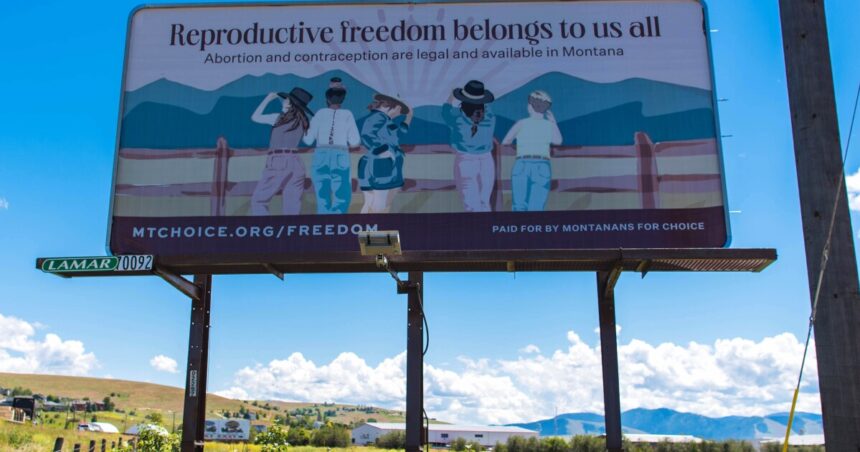The number of Idahoans traveling to Montana to receive abortions has tripled in the last year.
Following the repeal of Roe v. Wade in 2022, Idaho implemented a ban on abortions in most cases, with exceptions only for instances of rape, incest, or if the life of the mother is at risk. Residents seeking care have been turning to neighboring states with fewer restrictions for alternatives.
Prior to the Dobbs’ decision, areas in north eastern Idaho that lacked abortion clinics saw patients close to the border already seeking care in Montana.
Chief medical officer at Montana’s Planned Parenthood and abortion provider, Samuel Dickman, remarked, “For years we’ve had patients coming from Idaho to get abortion care in Montana but there’s certainly been an increase in the two years since Idaho has banned all abortions.”
According to the Idaho Department of Health and Welfare, the number of Idahoans traveling to Montana for abortions has been increasing. In 2021, 28 individuals made the trip, which rose to 32 in 2022, and spiked to 88 in 2023, the first year of Idaho’s full abortion ban enforcement.
Dickman explained, “That’s because a patient in Pocatello previously might have been able to travel to Boise for care, and now that’s just not an option so we see patients from eastern Idaho, northern Idaho and honestly all over Idaho. Even the Boise area for patients who aren’t able to get over to Oregon or Utah.”
In 2022, 115 Idahoans traveled to Utah for abortions, compared to 63 in 2021. Data for the latest year are not yet available.
The extent of out-of-state travel for abortions by Idahoans since the ban was imposed remains uncertain. Due to shield laws, Washington and Oregon have ceased sharing abortion-related data with entities that restrict abortion access.
In 2023, Montana passed nine anti-abortion laws, but legal challenges have halted their implementation. This situation has caused confusion among individuals regarding access to abortion care in the state and prompted an advocacy group to erect billboards informing the public of the continued legality of abortions and contraception in Montana.
Dickman emphasized that while Idahoans can seek help out-of-state, the process of traveling for an abortion can be challenging.
He mentioned, “Often, they’ve been calling clinics in nearby states like Utah, which has stringent restrictions. They might have contacted the now-defunct clinic in Jackson, Wyoming, that provided abortion care. Patients frequently experience emotional turmoil throughout this journey.”
“By the time they’ve reached our clinic, even after enduring long drives, time off work, childcare arrangements, and transportation logistics, patients are often overwhelmed with relief,” he added.
Dickman noted that these logistical hurdles disproportionately impact low-income women and minors who lack the means or support to travel across state lines for abortion services.
Copyright 2024 Boise State Public Radio News





